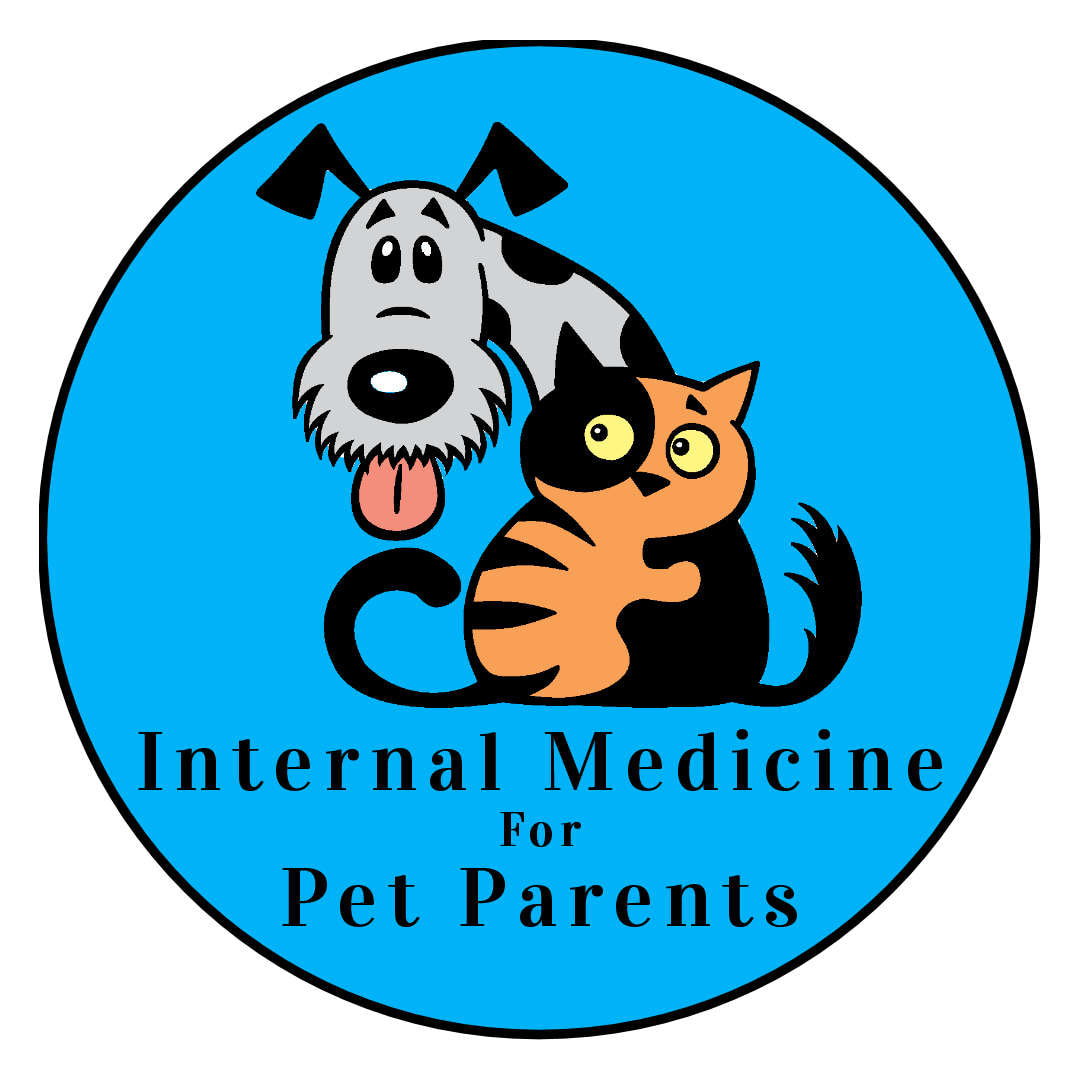Getting an Over Active Immune System to Chill Auto immune or immune mediated diseases are those diseases where the immune systems has malfunctioned and is attacking its own body. The immune system is too sensitive, it's hyperactive, it is responding to things inappropriately. What are some of the common immune mediated diseases? Immune Mediated Hemolytic Anemia, Immune Mediated Thrombocytopeina, Evans Syndrome, Immune Mediated Neutrophilia, Panniculitis, and Immune Mediated Polyarthritis. In the case of most of these diseases, the immune system has wrongly tagged the body's cells with an antigen tag that labels it as a foreign invader. Normally these antigen tags are a good thing. In a normal immune system when a virus, bacteria, or other foreign organism invades for the first time the immune system has to first recognize the organism as being harmful. Once the immune system establishes this, it remembers the organism by creating an antibody (a type of protein in the blood) specifically for the antigen so the next time the antibody runs into the antigen, the immune system can respond quicker and better. The immune system catalogs the antigens with the corresponding antibodies. The more antibodies for a specific disease floating in the blood stream, the easier it is to find that invading antigens. These are measured with antibody titer levels. The higher the titer, the more the immune system can patrol the body. Think of the antibodies as police, if there are more cops on the beat, crime goes down. But, if there aren't enough police officers, bad things can spread quickly and invade the surrounding neighborhoods. If the body incorrectly tags a cell within its own body as being bad, then the immune system produces more antibodies for these 'invaders' and more of the body's normal cells are attacked. What can we do to stop the body attacking it's own cells? We suppress the immune system. A suppressed immune system means it is sluggish to work, or it doesn't respond at all to antigens. In order to do this we used certain medications. Be aware that close monitoring of your pets blood is required during the initial phase of treatment, and it is very common for doses to change frequently. I highly recommend using a spread sheet to keep track of medications to help prevent missing or doubling doses. I also found a pill dispenser to be very helpful to make sure nothing gets missed. Filling the dispenser once a week can save time throughout your week, and keep you sane. Drugs Commonly UsedGlucocorticoidsGlucocorticoids, commonly known as steroids, are the gold standard for suppressing the immune system. In the hospital, this may be giving injectably and then when the patient transitions home can be giving orally. The most common glucorticoids used in veterinary practice dexamethasone injectable, and prednisone or prednisolone orally. It is readily available at most human pharmacies and is fairly inexpensive. We naturally have glucocorticoids made in our body. In normal amounts it helps prevent inflammation, aids in the metabolism of fats, proteins, and carbs, and it effects the blood pressure. Stress causes a higher than normal amount of glucocorticoids to be produced. Since glucocorticoids in high amounts will suppress the immune system, this is why we get sick when we're stressed out. With auto-immune diseases, we want to suppress the immune system, so we give high doses of steroids. High doses of steroids are not good over an extended period of time which is why veterinarians don't want to use them indefinitely. It typically takes 2-5 days to become fully effective in the body. Common Side EffectsWith the use of high doses of steroids come side effects. Fortunately most of these side effects go away when the dose is lower and when we stop the drug. Some of the most common side effects include:
These side effects can be extreme. When my dog, Luna, was initially prescribed prednisone she drank A LOT! I was constantly refilling the water bowl. Because she was drinking so much, she had to urinate every 1-2 hours large amounts. This included overnight. Unfortunately she had multiple accidents in the house, and despite my attempt to train her to jump into the shower to urinate if we weren't home, she still had accidents. I felt like I had a new born baby at home with how frequently she needed to go outside. I was exhausted from the constant getting up in the middle of the night for her. Be patient with your pet. They are not doing these behaviors to make you made, it is the strong effects of the drugs. Another common complaint is the severe muscle wasting seen, especially in larger dogs. The medical term for this is muscle atrophy. It may seem that your pet is aging in front of your eyes. This is from the steroids. In high doses, the body stops building muscle and actually starts to break down the muscle. The most common places we see this is the top of the head where it will appear sunken in, in the hips and shoulders, and the abdomen. With abdominal muscle atrophying, the dog may suddenly look 'pot-bellied' or bloated. They may not be gaining weight, just the loss of muscle to hold their abdomens up like normal. The great thing to know is: this is all temporary. As we taper the steroids your pet will regain muscle and look more normal again. Stopping SteroidsYou may notice your veterinarian will prescribe a tapering dose (gradually reduced amount) for steroids. Because we are supplementing steroids to the body, the adrenal glands will stop producing it itself. If we abruptly stop giving steroids, the body may not have enough time to produce it again and normal functions in the body could fail leading to a crisis called Secondary Adrenal Insufficiency. Here is a list of clinical signs that can happen from steroid withdrawal:
Secondary Drugs: ImmunosuppressivesAtopica™What is Atopica™ and how does it work? Atopica™ is a brand name for cyclosporine modified, USP Modified and is commonly used for atopy or environmental allergies. It is also used for many auto-immune diseases, but a much higher doses than for atopy. It has been shown to be extremely effective for auto-immune diseases. The dose range for this drug is wide and can be monitored with checking blood levels to make sure immune suppression happens and also to make sure it's not at toxic levels. It can take 7-10 days to be at a blood level concentration required to be fully effective after dose changes. Atopica™ is for animal use only and is only available from pharmacies supplying veterinary specific drugs. In California individual veterinary clinics, online pharmacies, and Costco carry it. Be sure to order it ahead of time before running out as it can take a few days to get. Adjustments in dosing may occur during treatment. At the time of this writing there are two tests to help veterinarians know what dose is best. The first is called a cyclosporine assay. This monitors how much of the drug is in the blood stream, or how much is being absorbed by the patient. Another very specific test is an IL-2 suppression test. This is done at a specialty lab and monitors how much immune suppression is occurring. This can help determine if we are achieving true immune suppression, or if we can adjust the medications for better suppression. Concerns when using the drug: There are several drawbacks to the drug. The first is cost. At the time of this writing, Atopica™ can cost $30-$50 for 15 of the 50 mg capsules. If a 50# dog gets anywhere from 50-100 mg twice a day, it's easy to see this can add up fast. At one point, Luna's monthly Atopica™ bill was about $700. Thank goodness for pet insurance, I wouldn't have been able to sustain that over the long term without it. There is a generic cyclosporine available, however there have been studies showing that the bioavailability (how well the body absorbs the drug) is not nearly as good as Atopica™, so many veterinarians do not recommend it. Whichever form you give your pet, it is highly recommended to not switch back and forth as that will make it hard to regulate. Possible side effects:
The most common side effect is some gastro-intestinal upset. Some pets do not tolerate Atopica™ at the doses we use for immune suppression. It is recommended to give the capsules on an empty stomach, however that can upset the stomach. If this happens, you can give it with food. Just understand that the body may not absorb the drug as well. Either way, just like not switching brands, I don't recommend switching between giving with food and giving on an empty stomach. Just do it the same each time and let your veterinarian know. If vomiting or diarrhea occurs speak to your veterinarian for options. Just like any immune suppression drugs, cyclosporine use can lead to secondary infections since the body can't fight off diseases like normal. So, I don't recommend taking your pet to the dog park, to play with new puppies, or go around other animals infected with any diseases. One of the listed warnings for Atopica™ is the development of cancer. There is some debate as to whether it causes cancer, or it allows the cancer that may have been present before to grow rapidly. Either way, it is something to monitor for. I have also seen one patient have what is called gingival hyperplasia, or excessive growth of the gums. This can be corrected with oral surgery, but if the pet continues to take Atopica™ the gums will continue to grow. Mycophenolate myfetilWhat is mycophenolate and how does it work? Mycophenolate is a common drug used in humans after organ transplant procedures to suppress the immune system so the body does not reject the new organ. Much in the same way, mycophenolate is used in veterinary medicine to suppress the immune system enough to not attack its own body. It is fairly inexpensive and can be found readily at human pharmacies. Possible side effects:
I had originally started Luna on mycophenolate due to costs of other drug choices and she did well for about 6 months and then she developed bone marrow suppression, so we stopped. Differentiating bone marrow suppression from a relapse of disease can be difficult and may require a bone marrow biopsy to get a definitive answer. Some owners choose to switch to another immunosuppressive medication and forego a bone marrow biopsy. AzathiaprineWhat is azathiaprine and how does it work? Azathiaprine works to suppress the immune system and can time between 1-5 weeks to start working. Due to the amount of time required to work, it is typically not used alone, but with corticosteroids to help taper the steroids faster. The kidney and liver work to excrete azathiaprine from the body, so careful monitoring of chemistries, especially liver chemistries, are recommended. Possible side effects:
Due to the cost associated with monitoring serum chemistries, some veterinarians elect to use other medications now and azathiaprine is falling out of favor with some doctors. Pet and Disease SpecificIt is important to keep in mind when treating immune system diseases to follow veterinarian recommendations for each specific pet and disease. Not all treatments work for each immune disease, and animals may have other health issues that would make one treatment not ideal for them. We'll be talking about individual diseases and common treatments for those in later articles. I hope this helps understand some of the basic treatments for auto-immune diseases. AuthorYvonne Brandenburg, RVT, VTS (SAIM) is a Registered Veterinary Technician practicing in California and obtained her Veterinary Technician Specialty in Small Animal Internal Medicine in 2016. She is the founder of InternalMedicineForPetParents.com. For more about Yvonne visit her author page here.
Comments
|

Ready to Work Together?
Thank you!You have successfully joined our subscriber list. This website is NOT a substitute for veterinary care with a veterinarian. We recommend you follow the advice and treatment plan as prescribed by your veterinarian, and only after discussing anything found on this website with your veterinarian, with their approval, implementing advice found here.
Most of the information on this site is free for you to read, watch or listen to, but Internal Medicine for Pet Parents is also a business. So please expect hyperlinks to be affiliate links in many cases, where we receive a small percentage of sales if you wish to purchase. We only recommend tools, books and services that we use, or people we know personally. Integrity and authenticity continue to be of the highest importance to us. Read the privacy policy here. We hope you find the site useful! Thanks – Yvonne and Ashley Check us out on Facebook!
Categories
All
Archives
October 2019
|






 RSS Feed
RSS Feed